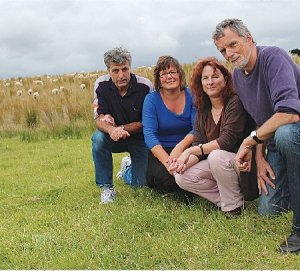THE FARMER Leptospirosis Action Group (FLAG) has contracted Massey University researchers to find out if leptospirosis affects agricultural productivity.
FLAG is funded by Government's Sustainable Farming Fund, Agmardt and industry stakeholders. It's project team includes representatives from Rural Women New Zealand, the Deer Farmers' Association, Beef + Lamb New Zealand, Federated Farmers and the New Zealand Veterinary Association.
"Infection in deer herds has been shown to lead to up to a 6.4kg lower average live weight at slaughter and up to a 10 per cent reduction in weaning rate," says Massey EpiCentre associate professor Cord Heuer.
Disease control through vaccination has proven highly effective in eliminating such losses, he says, while dairy and pig farmers already tend to implement control methods, which are presumably behind a drastic reduction of human Leptospirosis since the 1990s, Heuer adds.
"But at the moment there is no information about what benefit, if any, these measures might have for sheep and beef farmers. We know that 97% of adult sheep flocks and 97% of beef breeding herds have evidence of infection, with more than 50% of animals in New Zealand being antibody positive.
"What we don't know is if there's a productivity decline associated with the infection."
Given the results from deer herds, Heuer expects the findings could be similar for sheep and beef, but research will determine whether that is the case.
"More conclusive evidence is needed for farmers to make an informed, science-based decision about leptospirosis control programmes."
As well as research, an extension programme will engage stakeholders and disseminate scientific findings related to the disease through a series of field days and seminars. These will target farmers and farm workers, veterinarians, other rural workers, rural medical professionals and other stakeholders.
FLAG member Neville Haack says the group will hold regular farmer field days and provide updated information for farmers when applicable.
"We will also enlist a number of demonstration farms that will provide information through blood testing and production monitoring."
Haack adds a Leptospirosis website is being developed with Rural Women New Zealand that will act as an information portal for the latest research and other updates from the group.











